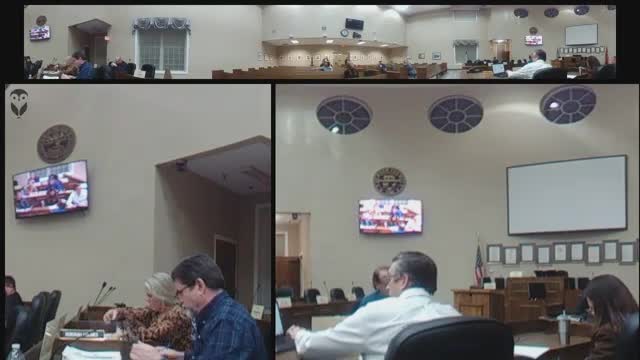Residents urge county to regulate short-term rentals after spike in complaints; staff outlines state limits
Get AI-powered insights, summaries, and transcripts
Subscribe
Summary
Multiple residents near lakes and subdivisions told the planning commission that short-term rentals are creating noise, safety and parking problems. Planning staff summarized the state Short-Term Rental Act and noted grandfathering and enforcement limits; commissioners asked staff for research and possible draft language.
Dozens of residents and several commissioners used an item on the agenda to press Sumner County officials to consider regulation of short-term rentals (STRs) in the unincorporated county, citing noise, occupancy and safety concerns.
Staff summary of statutory limits: Planning staff told the commission that the state’s Short-Term Rental Act (adopted in 2018, as described in the staff presentation) requires certain protections for existing rentals and limits the ability of local governments to apply new rules to properties that were legally operating before a new local ordinance takes effect. Staff said local governments may establish permitting or application processes, inspections and fees, but state law gives grandfathered status to properties already operating legally. Staff also noted enforcement and staffing implications for the county and said estimates of the number of STRs vary; he reported a quick check found roughly 12–20 listings in the unincorporated county on one platform and a separate quick search by a resident found 139 listings countywide on a public website.
Public comments and examples: Several residents who said they live near lakefront properties described repeated late-night parties, fireworks landing on docks, apparent drug use, parking overflows into neighbors’ yards, and occupants outnumbering bedrooms. Casey Allison, a resident who said she lives in Forest Point, told the commission, “The noise is a problem. Disregard for property lines is a problem. Drug use is a problem.” Pat Wood, whose address is on Lake Court, said property owners who buy to operate STRs often live out of state and “These people don't care,” and described multiple late-night disturbances at a nearby rental. Amy Harris told the commission she found 139 listings in Sumner County during a web search; other public commenters said they call law enforcement but that repeated noncriminal disturbances place a burden on first responders.
Commissioner comments and next steps: Commissioners voiced concern about enforcement capacity, how to locate unpermitted units, and the fiscal impacts and staffing that a permit-and-enforcement program would require. Some commissioners recommended staff compile model ordinances and examples from neighboring jurisdictions (City of Gallatin, Hendersonville, and Wilson and Williamson counties were referenced) and quantify how many STRs exist and what enforcement would cost. One commissioner suggested any local permitting program include inspections for fire and safety and potental tax classification changes; another commissioner asked whether hosts and platforms (Airbnb and similar services) could be leveraged for enforcement and whether short-term rental platforms already prohibit disruptive gatherings.
Ending: Planning staff said a focused study — including an inventory of existing STRs, review of neighboring ordinances, staffing and fee analyses, and legal review of state grandfathering provisions — would be the next step if the commission wants to proceed. No ordinance was proposed or adopted during the meeting excerpt.
